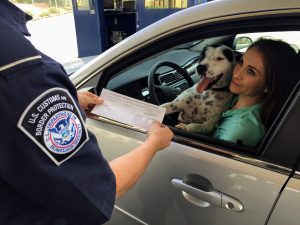With political pressure pushing immigration reform into the national spotlight, employers that neglect one legal issue can turn a profitable company into a financial pit of endless lawsuits.
We’re talking about I-9 compliance.
Never has the immigration spotlight burned more brightly as it does now on United States employers. U.S. employers need to know what an I-9 is, as well as how to ensure they are compliant with all legal obligations when it comes to their hiring practices. Thus, we have outlined six practical tips to help ensure legal adherence to all I-9 requirements.
Overview of the I-9 Employment Eligibility Verification form
In 1986, the United State Congress passed the Immigration Reform and Control Act that requires United States companies to verify the legal documentation of all workers. Documentation can be in the form of a passport or the combination of a driver’s license and Social Security card. Newly hired employees have several legal options to prove they have legal rights to work within the United States.
With the focus on immigration law at an all-time high, American employers should follow these six tips to help ensure I-9 compliance.
Lean on the M-274
M-274 represents the best resource for employers to use concerning I-9 compliance. The handbook presents straightforward information that helps U.S. employers not only verify a prospective employee’s legal status, but also provides useful information on verifying documentation. This manual, which you can find online at http://www.uscis.gov/files/form/m-274.pdf, is especially helpful in verifying the legal status of potential employees.
Photocopy Everything
I-9 compliance only requires American employers to verify prospective employee documentation and then sign the I-9 to complete the process. Nowhere in the law does it state that employers must prove employee legal legitimacy by photocopying documents, such as passports and driver’s licenses. As there are different schools of thought as to whether employers should retain photocopies of the documents along with the I-9, employers should contact their legal counsel to determine the best practice for their respective organizations.
Secure All I-9 Documents
If the federal government issues an Immigration and Customs Enforcement (ICE) audit on your business, you need to provide the documents that verify employee employment eligibility. This means U.S. business should electronically store all I-9 compliance forms, as well as secure hard copies of the documentation.
Compliance Means Scrutiny
Even if you run a small business, you run the risk of failing to meet United States immigration laws by not staying on top of I-9 compliance. This means American employers of all sizes must entrust I-9 compliance to a human resources professional that thoroughly understands I-9 compliance regulations. The human resources professional should perform internal audits to ensure all documentation required by the federal government is on hand.
Train Your Human Resources Team
Every member of your human resources team should pass a rigorous training program that covers every issue associated with I-9 compliance. The human resources manager should be a part of the training, not the employee that conducts the training. Have a certified government I-9 compliance expert conduct the training.
Consult with a Legal Expert
I-9 compliance should never become a guessing game. The financial penalties are too high for guesswork. Whenever an American business has the slightest doubt about I-9 compliance, make sure to consult with a legal expert to ensure proper legality. If you have an I-9 compliance question, do not hesitate to contact the team of immigration law attorneys at Saleh & Associates.







